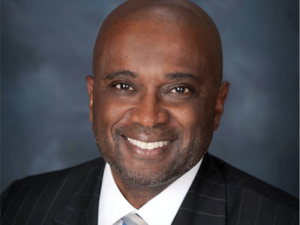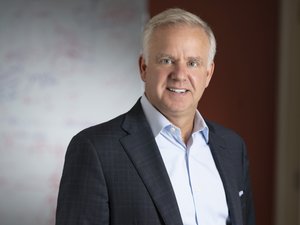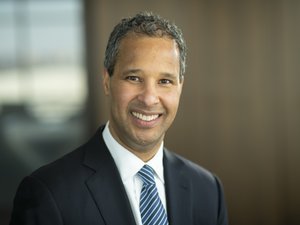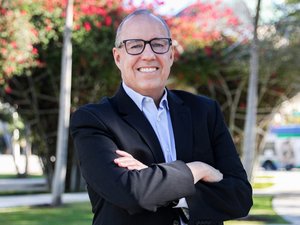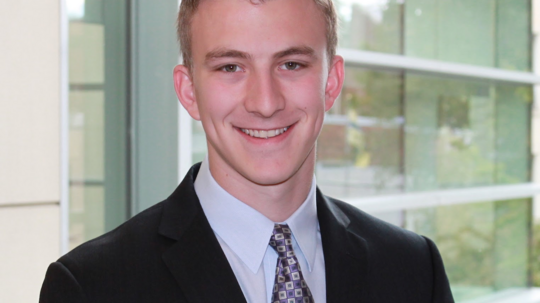
It’s 3 a.m., classes start in a few hours.
The homework, reports and anxiety of impending exams is beginning to pile up past the point of no return. From a quiet, upperclassman dorm room on George Washington University’s carefully-hedged, D.C. campus, drunken laughter carries in the metropolitan distance, but junior Max Friedman is alone, wide-eyed behind a dimly lit laptop monitor with a smile. His smartphone app, Happening, is seeing a huge spike in downloads.
Between sips of a Redbull, he begins to track where the traffic is coming from in hopes of finding a way to recreate it. The hours spent start fading. Less than two years prior, Friedman had no coding abilities. Today, he runs everything from business and product development to customer outreach for his startup, Happening.
This is the story of a student entrepreneur, caught between choosing a degree or dropping it all to realize the potential of his business. It’s the cliche decision most college entrepreneurs must consider—it’s the Mark Zuckerburg narrative, Peter Thiel's ideology—but it is nonetheless monumental in every capacity.
I met with Friedman, a finance-computer science double major, last week outside a coffeeshop near K Street on a cloudy Wednesday.
He had walked to the wrong Peets Coffee, originally, and was speed walking between flashing crosswalks from nearly the White House. Slightly out of breath, we sat down at a steel table to talk about a company he had created with a group of friends spanning two universities—GW University and Boston University.
Before I mentioned anything, Friedman blurted out that the bags under his eyes were “totally normal.” He then let out a laugh, held out his iPhone, with the app open, and jumped right into a polished pitch. He had done this before.
On September 19, inc.com wrote a trendy, listicle-style story under the headline “Seven Networking Apps That Are Changing How You Network.” Before long the post had been shared more than 10,000 times via different social media platforms. It was a hit. Happening, a still-young events app that enables users to see popular activities shared between Facebook friends, was at the top of the list authored by Inc.’s John Rampton.
“From a young age I have said that I was interested in entrepreneurship, but I never really knew what that meant. Movies like The Social Network and shows like HBO’s Silicon Valley glorify the startup culture to an extent, but I have experienced firsthand the sleepless nights and headaches involved with starting a company, and you have to really love what you’re doing to stick it out. And I do,” the Happening founder and CEO told DC Inno.
The Inc. article, he later found out, had caused the burst in downloads that night. And that’s basically how I first found out about this story.
Beginnings
Happening is an iOS only application that plans to soon offer an Android version. It can be downloaded for free in the AppStore and is centered on five cities, at the moment, including D.C., Boston, Nashville, Philadelphia and San Fransisco. D.C. and Boston are the two most developed platform cities.
The team behind this app and the larger company, is made up of four student entrepreneurs: Friedman, Alex Brown, Liran Cohen and Jonah Chazin. Each member of the team is, as you can perhaps imagine, extremely different in terms of their business background, college life and career aspirations. Friedman met Liran and Brown at GWU, primarily through his campus club, GW Startups, for which he is the President.
Chazin is a medical student at Boston University and a longtime friend of Friedman. They grew up together in a neighborhood, in New Hampshire, just a few miles apart yet a world away from Silicon Valley.
Today, Brown and Cohen work as developers and Chazin acts as the business guy in Boston—setting up meetings with advertisers, event sponsors and venture capitalist between frantically studying for the MCATs. It’s a delicate balance, that teeters on crashing, but Chazin said he does his best to make it work while begrudgingly admitting that med school definitely takes priority.
“It’s definitely a hard thing to manage. When I get into the work I do for Happening—creating client relationships, tweaks to the app, brainstorming with Max, acquiring new users—I love it and it really takes a hold on me. But, then tests roll around and my works piles up and I have to study, and I’m forced to put Happening on the shelf,” Chazin explained.
He added, “I hate it because in a perfect world, I would have time for all of it. I struggle with my want to be a loyal friend and put as much effort as Max does into it (as well as my desire to make my mark on our business), and my desires to do well enough in college so I can go to medical school.”
Cohen originally became part of the team through a club GW Startups meeting, where Friedman presented a prototype version of Happening about two years ago. Shortly after the meeting, Cohen approached Friedman with an offer: he wanted to code a custom website for Happening free of charge, just for fun. He now is “the glue that holds Happening’s backend and web development together,” Friedman said.
Brown, the latest addition to the team, was first introduced to Friedman and Happening in a similar fashion. The Happening CEO met him about six months ago after a presentation to an introductory GW computer science class. After class, Brown rushed Friedman, in a quiet tone he said “I’ve never made an Android app before but I want to make the Android version of Happening.” Friedman was skeptical.
In five short months, Brown managed to teach himself Android development while replicating Happening’s iOS app. The team hopes to release the aforementioned Android version by October 15.
“My immediate and visceral reaction to the app came from the fact that the product filled a need I had often experienced. That aside, I remember thinking in the middle of his presentation, I needed to be a part of this team,” Brown told DC Inno.
What is it?
In a separate email interview, I asked Friedman where he saw himself in five years. His response was calculated, hopeful, forward thinking and endemic of the product: “in five years I see Happening on phones right next to Snapchat and Instagram, and if I’m lucky enough I’ll still be running the company. I believe that there is going to be someone in the next two years who will definitively crack the event discovery code. I honestly believe Happening has the potential to be that company.”
Happening is essentially an event finder application that uses a relatively simple filter system organized between five categories. The app also employs a Tinder-like swiping system to help bookmark and select events, creating a basis for event preference over time. Then a 3rd layer offers a way to view event recommendations based on what nearby friends within your network are selecting.
The aforementioned category selector is step one in the exploration process, and revolves around five types of events within a given city: most popular, best deals, sports, bars & clubs and concerts & shows.
Because Happening was essentially born out of two college campuses, the filter categories were naturally influenced by a younger demographic. With that being said, Friendman explained that he hopes to soon expand these categories, as the business matures, and to include a more diverse list of “happenings” via the app.
For anyone who’s familiar with the mobile app development world, you know that this sort of app-based event finder space is extremely, for lack of a better term, saturated with clones. From my phone, right now, I can count three. Friedman, too, is aware of this reality and said he has worked to differentiate Happening, to engineer a new model that’s more “friend-centric.”
“Happening plans to cut through the noise by focusing on the most important factor of a great event: friends. Unlike most event finding apps, Happening is not a directory of events. We recommend the best events, every week, based on three main elements: your preferences, history, and what your friends are interested in doing,” Friedman explained.
Progress
"I think it’s easy to dismiss the value of a degree in startup culture"
The college startup founder declined to provide a total user figure for Happening, but explained that daily download totals can range from anywhere between several dozen to more than eighty. In addition, the app recently eclipsed 40,000 event swipes—which acts as an inherent measure for user interaction.
Roughly 50 percent of users who download the app remain active on it today. In addition, user growth is currently in excess of 50 percent per month, while the team has also received requests representing over 60 new cities in a total of 13 countries. “A personal goal I made for myself when I first started Happening was to break a million active users before I graduate, so in about 1.5 years,” said Friedman.
“The idea behind Happening was always there, but our early versions only scratched at what we hoped to achieve with Happening. We used the early product and our early adopters in a trial-and-error fashion: from their feedback and our exploration in this space, we now have a product that resembles our goal all along,” Chazin told DC Inno.
"I have experienced firsthand the sleepless nights and headaches involved with starting a company"
As it stands, Happening is entirely bootstrapped, meaning that the startup has received no outside funding to support operations. It’s currently self-sufficient, however, thanks to micro-payments being made by a small group of beta-customers and other event aggregation sites that siphon a small piece of ticket sales to similar services who promote their content. Last week they signed their first large customer in Boston and another will soon follow in D.C.
While developing the algorithms to better automate event listings onto the app is a work in progress, the team spends a considerable amount of time, today, simply entering event information into Happening, everyday. Friedman explained that, among other things, this laborsome process is undoubtedly holding them back. He said he soon hopes to upgrade this inventory submission format but did not expand further on the topic.
“I think the biggest change you will see with the product over time is that we will be able to hyper-curate event experiences. We are collecting so much data about events and users’ preferences, and soon we will be able to predict events that users might be interested in that they may never have heard about otherwise,” Friedman explained.
Entrepreneurialism v. College
The dream of running a startup, and building a company from seemingly nothing but an idea has long been a dream of Friedman’s. For others on the team, the answer isn’t as simple, but today they’re all connected and working towards one goal: “seeing how far they can take this thing.”
If it fails, if this project called Happening eventually runs out of steam, each person on the team individually told me that it would have been, at the very least, a massive learning experience.
Dropping out of school is less of an option today, for everyone involved in the startup, but the decision has been discussed before. Pursuing a degree is an expensive endeavor and that’s where the priority is. For reference, GWU’s annual tuition is roughly $50,000, making it one of the most expensive institutions in the country. Suddenly dropping out could have more than just career implications.
“I think it’s easy to dismiss the value of a degree in startup culture, but the reality is that over 80 percent of startups fail and having a college degree provides a necessary level of job security,” Friedman explained, “so yes, I want nothing more than to give all my time to Happening, but I have to be realistic. In my opinion, today, there are too many people misattributing dropping out of college to succeeding as an entrepreneur.”
Brown (the Android developer that spends roughly 8 hours coding every weekday) said that the experiences and challenges related to building a startup had also offered him some life lessons.

“As a brief bit of backstory, I failed in what I set out to do in my last experience with a startup, I had essentially chalked the whole experience as something to be forgotten. My time at Happening has helped me to see it in a different light and how I really had learned because I failed,” Brown described of his career as an entrepreneur, “I’ve learned how not to quit.”
Cohen also added, “I’ve always stood by the philosophy that failure does not exist.”
Obviously, nurturing a startup from a series of dorm rooms brings along challenges that are typically avoidable by most founders. But for the guys behind Happening, it has come with some valuable moments as well—like learning to avoid the “noise,” the distractions and being able to focus on a real goal. Indeed, this lifestyle and daily grind is jokingly described by their college friends as an “alternative” college experience. But for today, I think it suits them.
“At school there are always distractions. I’m building an events app after all, so every day I see things I’m missing out on. It really comes down to self-discipline,” Friedman reflected.
Cohen went further, saying: “in order to be successful, it’s crucial to be comfortable making sacrifices—including limiting social time and other extracurricular commitments. Another limitation that exists on every college campus is the cultural beliefs that we are meant to get a degree and enter the workforce in a robotic manner. This kind of culture naturally shoots down creativity, hampers collaboration and even demotivates students from chasing their dreams.”
“Right now, we’re chasing our dream,” Cohen said in his last email to me.
